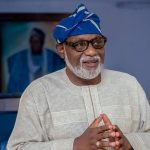
In a recent interview with Channels Television on Monday, Zach Adedeji, the Special Adviser to the President on Revenue, shed light on President Bola Tinubu’s visionary approach to Nigeria’s economic growth. Adedeji emphasized that Tinubu’s focus lies in taxing prosperity rather than poverty.
“The broad vision of Tinubu on revenue is not just tax,” Adedeji explained. “He believes that the success of revenue management and collection comes from three areas: economic policy. His intention is not to tax poverty but to tax prosperity. His intention is not to tax production but consumption, and that is the first line.”
Adedeji further highlighted two crucial steps taken by Tinubu to pave the way for economic prosperity. “He (Tinubu) has removed the two impediments to our economic prosperity: one is the subsidy, and the second is the unification of the exchange rate, which the CBN has done. That is laying the foundation for where we are going,” he elaborated.
Restoring public confidence in the government’s use of tax revenue is another significant aspect of Tinubu’s vision. Adedeji stressed the importance of citizens understanding how their money will be utilized, saying, “They must know what the government wants to use their money for.”
The third component of Tinubu’s approach involves effective tax administration, which focuses on revenue generation and other related aspects. Adedeji outlined this three-pronged approach, stating, “We have that tripod we want to run with. We have the plan to generate more than enough to run our government.”
Adedeji expressed confidence in the government’s ability to double its total annual revenue without imposing additional taxes. He emphasized that deepening the nation’s revenue collection system, rather than burdening citizens with extra taxes, will be the key to achieving this goal.
“Nigeria has a revenue problem, but the current administration is prepared to tackle the challenge through fiscal discipline and harmonization of revenue channels using technology to view all government revenue-collecting agencies in real-time,” Adedeji explained.
Adedeji underlined the legal framework governing revenue collection, citing Section 162 of the Nigerian Constitution, which mandates that all government revenue must be deposited into the Federation Account. Harmonization, as Adedeji described it, refers to the integration of all revenue-collecting agencies onto a single platform, allowing for real-time monitoring of activities.
“The law is very clear as to how to collect revenue,” Adedeji asserted. “We will make use of technology to know everything going on in real-time.”
Addressing concerns about the future of revenue-generating bodies such as the Nigerian National Petroleum Company (NNPC) Limited, the Federal Inland Revenue Service (FIRS), the Nigerian Maritime Administration and Safety Agency (NIMASA), and the Nigeria Customs Service, Adedeji reassured that the Tinubu administration does not intend to collapse these entities. Instead, technology will be employed to integrate all revenue-collecting agencies and eliminate any form of “government within government.”
“We are not collapsing,” Adedeji stated. “NNPC will be NNPC because it is limited, Federal Inland Revenue (Service) will be, but the collection of all revenue will be technologically driven by data.”
Adedeji concluded by emphasizing the positive impact of removing petrol subsidy and unifying foreign exchange rates on the economy, stating that these measures have eradicated distortions in Nigeria’s economic landscape.
“The windfall, which I know will bring shared prosperity for all Nigerians, will soon become apparent,” he concluded optimistically.





Comments are closed.